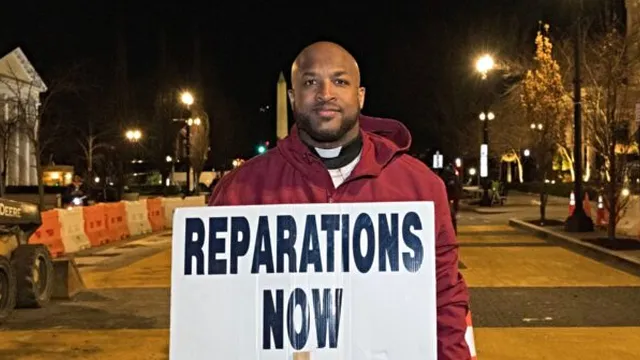
Caribbean delegation demands reparations for slavery at EU and UK meetings
2025-06-27 14:36- The Caribbean delegation's trip is organized by the Repair Campaign, which advocates for reparations.
- In Brussels, the group will meet with EU lawmakers to discuss compensation for slavery.
- The delegation's efforts highlight a growing global movement demanding reparations for historical injustices.
Express your sentiment!
Insights
In early July 2023, a delegation from the Caribbean Community (CARICOM) plans to travel to Brussels and London to advocate for reparations related to the trans-Atlantic slave trade. This initiative is organized by the Repair Campaign, which aims to address the legacy of colonialism and systemic injustices. During their visit, the delegation, composed of academics and policy experts, will meet with European Union lawmakers in Brussels on July 1 before heading to the UK Parliament for a briefing on July 2. Calls for reparations, which have been longstanding, have gained momentum recently especially within CARICOM and the African Union as they seek compensation for historical wrongs that continue to impact contemporary societies in terms of systemic racism and discrimination. Despite acknowledging the suffering inflicted by colonial powers, European states have yet to agree on reparations. Arguments surrounding the legitimacy of these claims are heated, with opponents asserting that modern institutions should not bear the burden of past transgressions. Nonetheless, advocates emphasize the ongoing ramifications of colonialism, including racism, and highlight the need for actionable reparatory justice to remedy generations of inequity and exclusion. The UN has also joined the discourse, calling for frameworks that address the historical injustices faced by descendants of enslaved people across the world.
Contexts
The history of reparations for slavery is a complex and evolving narrative that reflects deep-seated issues of racial inequality and justice. The concept of reparations emerged primarily in the United States following the abolition of slavery in 1865, but the idea of compensating individuals for historical injustices can be traced back to various movements throughout history. The most recognized form of reparations pertains to the descendants of enslaved Africans, who endured centuries of brutal exploitation, systemic discrimination, and social disenfranchisement. Early discussions around reparations in the U.S. can be linked to policies proposed during the Reconstruction era, particularly the promise of "forty acres and a mule" to formerly enslaved families, which was largely unfulfilled and symbolized the broken promises of the U.S. government in protecting the rights and welfare of African Americans. The 20th century brought renewed discussions about reparations, particularly during the civil rights movement, where activists highlighted the economic and social disparities faced by African Americans. In the 1980s, the U.S. Congress held hearings on reparations, which led to increased public awareness and debate on the subject. Additionally, in 1989, Congressman John Conyers introduced a bill advocating for the establishment of a commission to study and develop reparations proposals for African Americans. This effort, although not passed, signified a significant moment in the ongoing dialogue surrounding restitution for the legacy of slavery and racial discrimination. In contemporary discussions, advocates for reparations emphasize the need for addressing systemic injustices, including wealth disparities and lack of access to education and healthcare that disproportionately affect Black communities. Globally, the topic of reparations has also gained traction, with several countries examining their historical roles in slavery and colonialism. For instance, in 2015, the Caribbean Community (CARICOM) launched a campaign demanding reparations from European countries that benefitted from the transatlantic slave trade. This movement reflects a broader recognition of slavery's lasting impacts on societies, and it highlights the growing support for reparative justice as a pathway to healing and reconciliation. Moreover, some countries, like Germany, have taken steps towards acknowledging their past and providing reparations to Holocaust survivors, illustrating that reparations can take various forms, including financial compensation, educational initiatives, and public apologies. As of mid-2025, the conversation surrounding reparations for slavery continues to evolve, informed by historical context and contemporary social justice movements. Increasingly, support for reparative measures is being noted among younger generations who see the detrimental impacts of historical injustices on current societal structures. While many challenges remain in achieving a consensus on what reparations should look like, including legal, moral, and financial complexities, the push for reparations signifies a broader demand for equality and recognition of history's injustices. Ultimately, the history of reparations for slavery is not just about financial compensation; it is a crucial aspect of the ongoing struggle for racial equity, dignity, and acknowledgment of the profound legacy of slavery in shaping contemporary society.